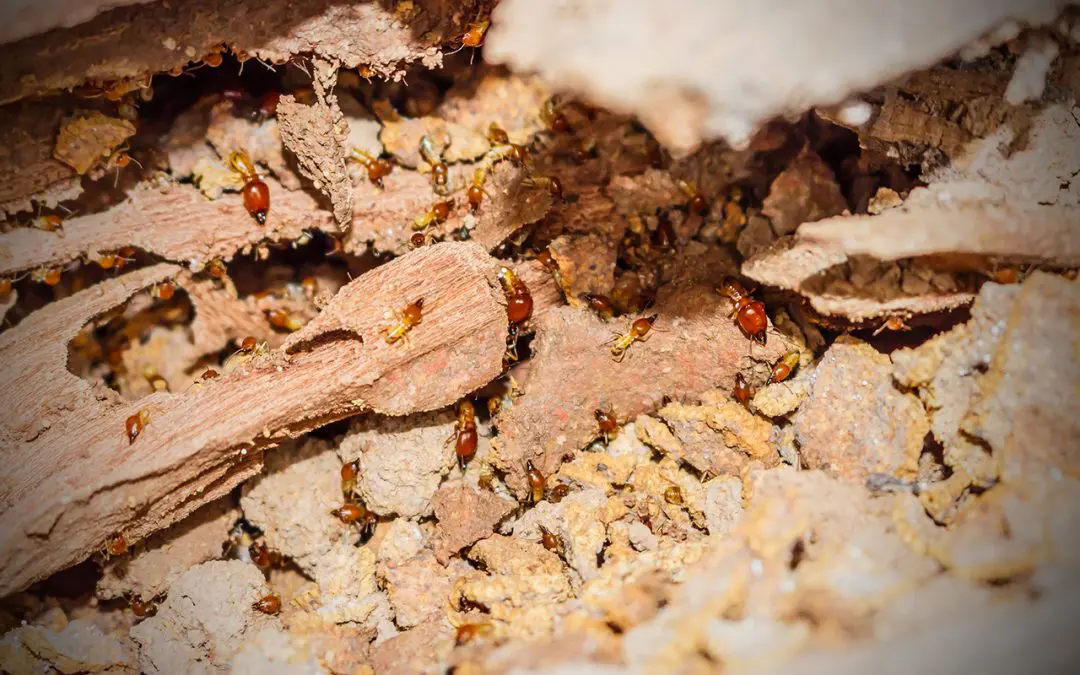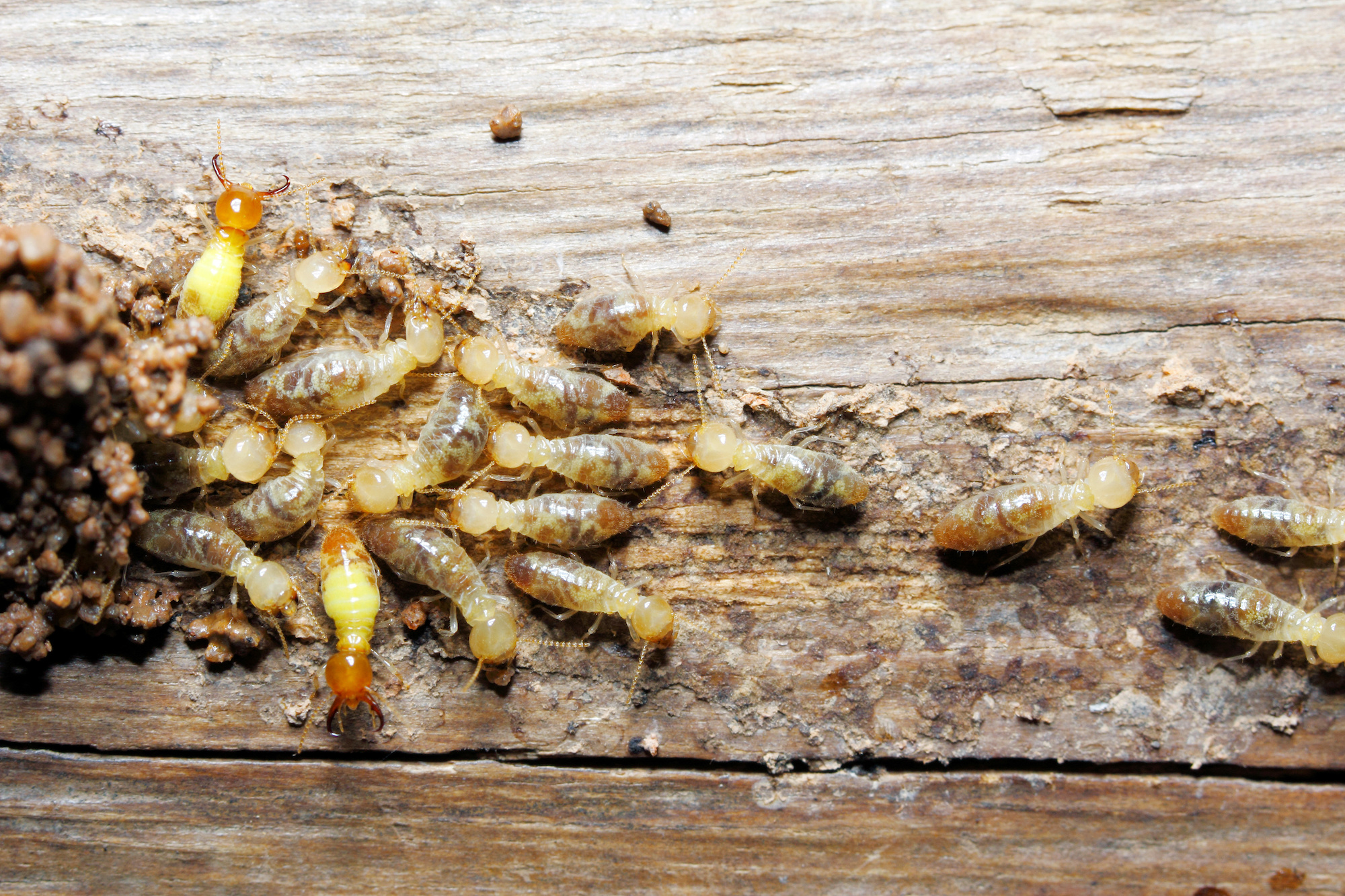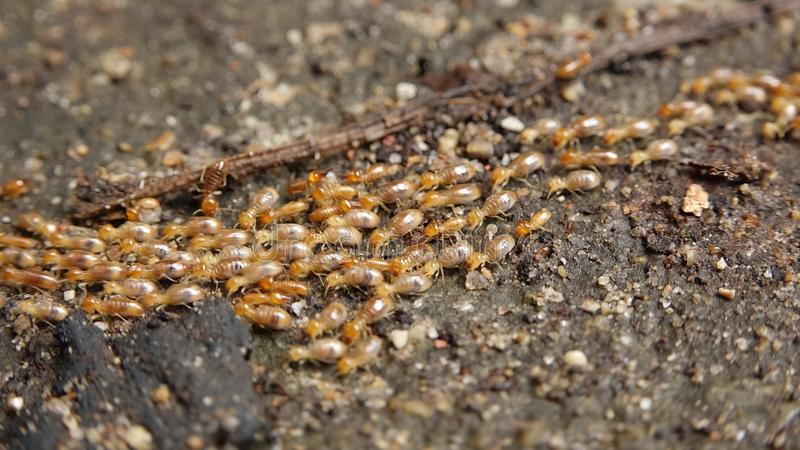Termite infestations can pose a significant threat to the integrity and safety of a home. It’s crucial for homeowners to address termite issues promptly and appropriately. There are two main perspectives to consider: ignoring termites and overreacting to them.
Both approaches have distinct consequences that can impact the structural integrity, financial stability, and overall health of a household.
Consequences of Ignoring Termite Infestation

First, we want to address the consequences of not addressing this issue.
Structural Damage and Safety Risks
Termites feed on wood, causing substantial structural damage over time. This can lead to weakened structures, resulting in sagging floors, warped walls, and even potential collapse.
Ignoring a termite infestation not only compromises the safety of the occupants but also poses significant risks to the overall stability of the home.
Financial Implications
The financial burden of ignoring a termite infestation can be overwhelming. Extensive damage requires costly repairs, and the property value may decrease as a result.
Homeowners often bear full financial responsibility since insurance policies typically do not cover termite damage. Regular termite control and maintenance can mitigate these financial risks.
Proliferation of Other Pests
Termites can create pathways for other pests, such as ants and cockroaches, to enter the home. This compounded infestation necessitates multiple pest control measures, further complicating the issue and increasing the cost and effort required to maintain a pest-free environment.
Health Risks
Termite damage can lead to mold and mildew growth in affected areas, posing respiratory risks to occupants. Living in a compromised environment can also cause significant stress and anxiety. Effective termite control is essential to maintain a healthy living space.
Legal and Insurance Issues
Homeowners have legal responsibilities to disclose termite infestations when selling their property. Failure to address these infestations can lead to potential denial of insurance claims. Ensuring proper termite control and maintenance helps avoid these legal and financial complications.
Consequences of Overreacting to Termite Infestation

Now let us see the consequences of overreacting.
Unnecessary Financial Expenditure
Overreacting to a termite infestation can result in unnecessary pest control expenses.
Over-treatment and excessive use of chemicals or treatments can incur significant costs without providing additional benefits. It is important to assess the severity of the infestation and apply appropriate termite control measures.
Environmental and Health Concerns
The overuse of pesticides in an attempt to eliminate termites can harm the environment and pose health risks to occupants and pets.
Excessive chemical exposure can lead to a range of health issues, making it crucial to use balanced and environmentally friendly termite control methods.
Disruption of Daily Life
Frequent and extensive pest control measures can disrupt daily life.
Homeowners may need to temporarily relocate during intensive treatments, causing inconvenience and additional expenses.
Properly planned termite control can minimize these disruptions.
The Bottom Line
Timely and appropriate action in dealing with termite infestations is essential for protecting property and well-being.
A balanced approach to termite control mitigates risks without overreacting, ensuring the safety and stability of the home.
Homeowners are encouraged to make informed decisions and prioritize regular inspections and maintenance to safeguard their property against termite damage.







